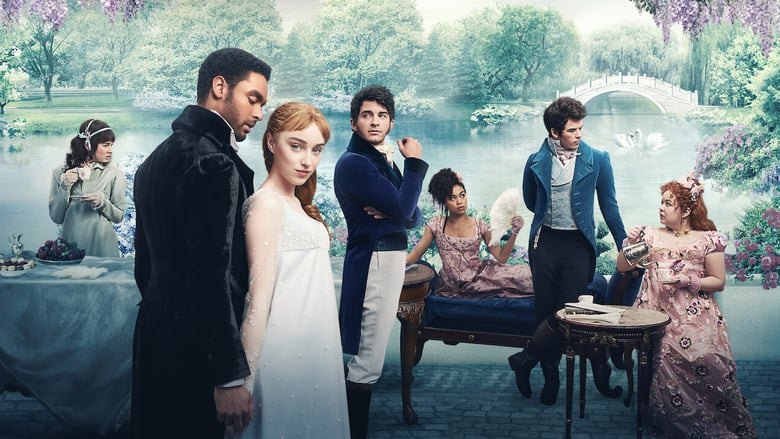2021-04-01
‘Bridgerton’ isn’t historically accurate, but it’s also not wrong
When Bridgerton dropped on Netflix, I didn’t know what to make of it. Was it historical fiction? Was it set in a parallel universe with actual racial equality? Or was it just another Shonda Rhimes vehicle to show off attractive people? The answer is yes.
 Late last year I thought I had sacrificed my unwavering dedication to historical accuracy in fiction by watching and thoroughly enjoying Netflix’s Bridgerton. Luckily, it also inspired me to do some research. That’s when I realized I hadn’t betrayed my principles at all.
Late last year I thought I had sacrificed my unwavering dedication to historical accuracy in fiction by watching and thoroughly enjoying Netflix’s Bridgerton. Luckily, it also inspired me to do some research. That’s when I realized I hadn’t betrayed my principles at all.
History had more diversity than we think
It didn’t take much searching to find examples of prominent black and Indian figures in British and also in American history that our schoolbooks had all but forgotten. As historian Miranda Kaufmann stated, history is “very much about what questions you ask of the past”. She found a whole slew of Africans present at the courts of Henry VII and Henry VIII, Elizabeth I and James I. Add more examples, like the African settlements known to have appeared already in Roman Britain (thanks largely to Rome’s legions, whose soldiers came from across the Empire) and you have to ask: What or who else could there have been and throughout history? And how should that be portrayed in TV and/or film?
Diversity in TV and film? Absolutely!
Should there be diversity and equal opportunity in who gets to portray whom in television and film? Yes, absolutely. Should this be at the cost of historical accuracy in period pieces? No. Prominent historical figures should be portrayed by actors who at least remotely resemble them. That’s my opinion about prominent historical figures. But what about the rest of society? Because for the most part, that’s who Bridgerton is about.
When I saw the trailer, though, I believed it was just a show that inaccurately portrayed Regency-era London to force racial balance into an era where there was none.
However
Or at least none that we are being told about. Was (high) society as diverse as it is shown in the show? Probably not. But, was it all white the way we have always seen it on the big and small screens? Probably not.
What if the rich white men who wrote the history we were taught in school wrote it so that it appealed more to them? Afterall, there is a reason we know far more about the lives of history’s few nobles than we do about the daily lives of millions upon millions of peasants: No one who could write cared about the commoners, so why would they want to write about people who looked different from how they did?
There is evidence for this
In many instances, historical texts often either glance over details like skin color or skip the people altogether. Mary Ellen Pleasant was one of the first self-made black millionaires in the US and a major supporter of the abolitionist movement and all she has today is the smallest park in San Francisco. Dido Elizabeth Belle was a gentlewoman living in Kenwood House who moved up society’s ranks until her death at the early age of 43 and although she is mentioned in the House’s English Heritage article, they don’t say she was black on the site. Abdul Karim was an attendant and close personal friend of Queen Victoria who remained in relative obscurity until they made a film about him a few years ago with Judy Dench as Queen Victoria.
My point is
If nothing else, shows like Bridgerton get people to ask the right questions so we can (finally) learn about the people who were forgotten for no other reason than they were different from the people writing the history books.
By the way, what is Bridgerton?
If you haven’t watched it, I highly recommend it. It’s entertaining and replete with drama, intrigue (both outside of and within the royal court) and the afore-mentioned attractive people. For those who haven’t jumped into it yet, Bridgerton is the story of a young debutante during the social season in Regency-era London. She is looking for a husband, as debutantes do.
And although there is some kind of myth about Queen Charlotte having had African ancestry, this is not really based in fact as much as it is based in . However, Golda Rosheuvel does a fantastic job of portraying her as an aloof, yet scheming and conniving monarch.
Admin - 17:50:23 @ Arts and Leisure | Add a comment
Last 5 comments
-
My spouse and I stumbled over here coming
from a different website and though…timeshuffle.io - A broken dish, a little gold and a valuable lesson
-
Pretty! This was an incredibly wonderful post. Thank you for providing this info…
cyclos.Io - A broken dish, a little gold and a valuable lesson
-
I’m impressed, I have too admit. Seldom do I encounter a blog that’s both educat…
-
What i don’t understood is actually how you’re not actually a lot more
smartly…Agoracom.Com - A broken dish, a little gold and a valuable lesson
-
Incredibloe points. Sound arguments. Keep up the amazing work. https://www.hotfr…


Add comment
Fill out the form below to add your own comments